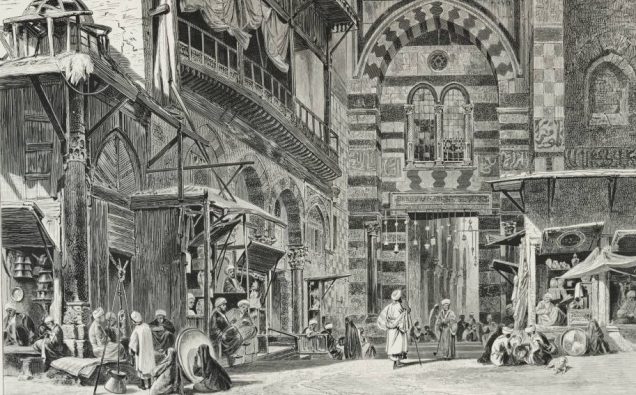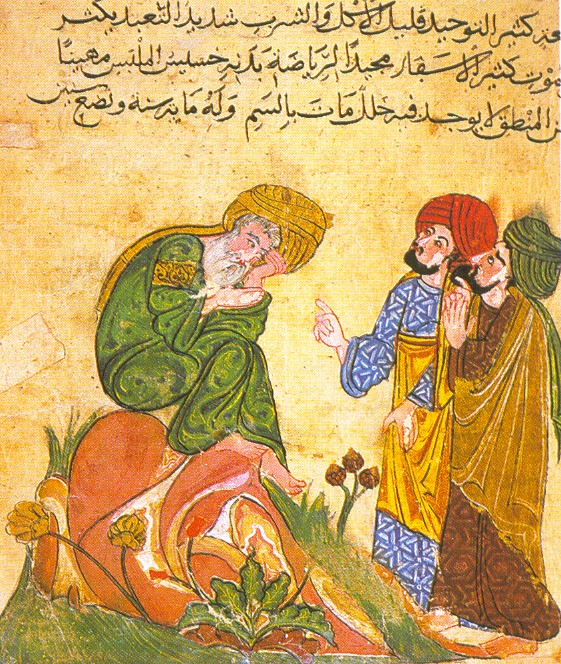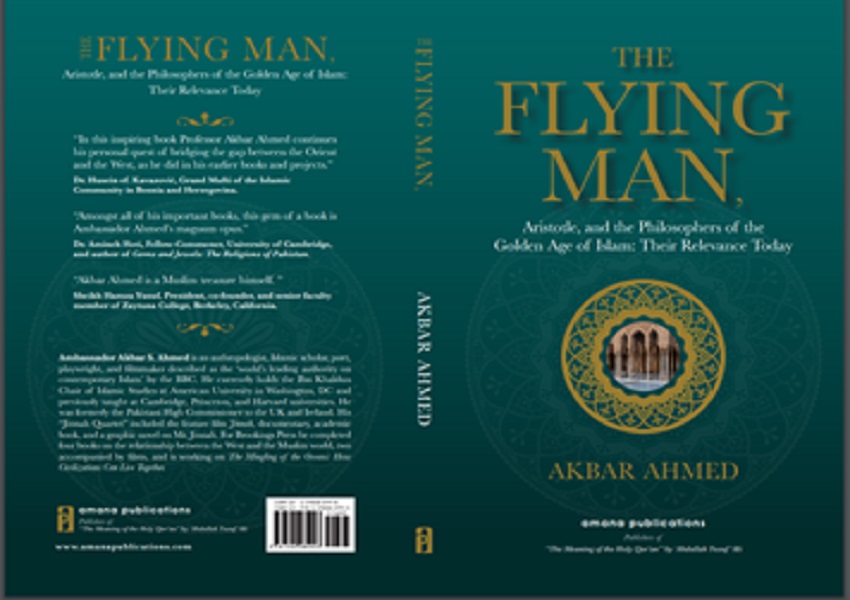
Since the outbreak of COVID-19, one of the most commonly used medical terms has been quarantine, the practice of isolating infected people from others as a way to contain the spread of the coronavirus. And who was the scientist who expounded the idea of quarantine medically? Ibn Sina or Avicenna, the philosopher, and physician who authored The Book of Healing and The Canon of Medicine.
Then there is another thing, the Internet of Things that we have come to rely so much upon since the pandemic hit the world, for work, socialization, and networking. And who was the scientist whose discoveries and mathematics achievements ultimately led to the use of logarithm? Muhammad ibn Musa al-Khwarizmi, whose genius blossomed in Persia just before the advent of one of the greatest periods of learning and creativity, known as the Golden Age of Islam.
Ibn Sina and Al-Khwarazmi are two of the many scientists, mathematicians, philosophers, architects, poets, polyglots, and scholars that the Middle East produced between the 8th and the 14th centuries. There was not just one but multiple centers of learning including Cordoba in Andalusia in the West to vast Persia, Baghdad in Iraq to Bukhara in Central Asia, and Cairo in Egypt, where some of the greatest minds made scientific discoveries, invented new tools, explored brave new ideas, discussed them fiercely, and tested previous theories fearlessly.
The era remains a fascinating subject to this day, making many wonder as to how a galaxy of such learned people emerged generation after generation on the scene within that span and left such deep imprints on humanity by shaping the future of arts and sciences.
A new book, to be out soon, attempts to spotlight some of the achievements of the era from today’s perspective. Titled “The Flying Man” and subtitled “Aristotle, and the Philosophers of the Golden Age of Islam: Their Relevance Today”.
The book by Pakistani-American scholar Professor Akbar Ahmed, Ibn Khaldun Chair of the Islamic Studies at Washington D.C.’s American University, is refreshing in that it talks to the reader directly as it seeks to narrate in simple language some of the highly sophisticated complex philosophical points. The book also informs the new generation of readers about facts that, somehow, go unnoticed.
For example, consider this paragraph:
“It is no coincidence that one of the first inventor-scholars to attempt flight was Ibn-Firnas in Cordoba, who is said to have been in the air for some 10 minutes. A prominent bridge in Cordoba depicting huge wings to symbolize his achievement is named after him; so is a crater on the moon. It is also no coincidence that many of the stars and planets and 24 craters on the moon are named after Muslim scholars to honor them.”
At the same time, the book talks to intellectuals, inviting them to be alive to the perspective in which Muslims should be understood and seen in place of the sweeping portrayals that are generally relayed in conveniently politicized and rhetorical discussions.
For instance, Dr. Ahmed touches on the tough question of the conflict between the approaches adopted by Al-Ghazali and Avicenna, who had the greatest respect for Greek philosopher Aristotle. In discussing their famous differences, Dr. Ahmed says Al-Ghazali, who is these days considered a conservative, was an admirer of Aristotle. The account of Ibn Rushd, who is now widely respected for his broader approach to interpreting the religious texts, also makes interesting reading.
A key point raised in the book is the importance of the culture of encouraging education and seeking the “Ilm” – an Arabic word for knowledge. To me, this knowledge ethos stands out as the most striking feature of the era. Of the great scholars, Dr. Ahmed writes:
“Each one of them was inspired by what I call the “ilm-ethos,” or the ethos dominating society of pursuing knowledge which crossed religious boundaries. The level of discourse, the libraries, the royal patronage and the high prestige attached to scholarship among Muslims encouraged scholars to pursue knowledge and inspired intellectuals living in Christian Europe. This seeking of knowledge, or ilm in Arabic, is fundamental to Islam and drove Muslims to the heights of civilization and innovation during the Golden Age, an ethos shared by non-Muslims who engaged with Muslims and their philosophic debates surrounding the reconciliation of religious faith and Greek philosophy.”
The intellectual tour de force that Dr. Akbar Ahmed undertakes during the course of the book makes him take into account philosophies and the thinking of a wide array of scholars. Yet, to his acclaim, he remains focused on its purpose – to examine some of the most prominent philosophers for modern readers.
In the end, Dr. Ahmed also grapples with the challenging task of inviting readers to see the relevance of these illustrious philosophers in today’s fast-paced life, where there is a growing appetite for illustrated facts but where the habit of reading is sliding down fast.

An Arabic manuscript from the 13th century depicting Socrates (Soqrāt) in discussion with his pupils/English Wikipedia
The Flying Man could be instructive on many levels. First and foremost, it reminds modern readers of the fact that it were the scholars and scientists of Islam’s Golden Age that provided a bridge between Europe’s dark ages and the Renaissance. Ibn Rushd or Averroes’s translations of the Greeks opened a whole new world for the European thinkers. Those who wonder at the missing links between the Roman Empire and the European Renaissance can clearly see how achievements of this era contributed to the great enlightenment period.
Secondly, the book offers a way forward to leaders of the Muslim majority countries – they can do so by correcting what has gone wrong and not by just using the Golden Age as a metaphorical oasis from the past in the face of today’s challenges. It is education, the pursuit of arts and sciences, and an environment of candid and enlightened discourse that helps achieve excellence in the fields of higher education, research, innovation, and leads to progress. In political terms, it’s called fostering the democratic freedoms of thought and expression.
Thirdly, the book points to the need for the Muslim majority governments and societies to invest in education, just as the rulers of Baghdad and Andalusia did, and, as explained in the book, those rulers took great pride in doing so.
Fourthly, it makes me think about what makes scholars creative, and not just be repetitive – a genuine quest for knowledge steeped in a multilingual, multifaceted profound understanding of contemporary and past societies as well as human nature coupled with the gifted expression of their ideas. That to me seems to be the rare combination of traits that eluded the Muslim societies for centuries from the time of the Golden Age until the exceptional phenomenon of philosopher and poet Allama Iqbal happened in the 20th century.
Disclaimer by the writer: The views expressed in this piece are entirely my own and do not represent any of the organizations I work for or contribute my writings to.













Many thanks to Mr. Ali Imran for a remarkable review of Mr. Akbar Ahmed’s upcoming book. Book is awaited to detail the immensely innovative ways of solving medical and mathematical problems by Muslim experts. There seems to be a realization that Muslims do not the same contribution in mathematics and social sciences as before. Mr. Akbar “offers a way forward to leaders of the Muslim majority countries – they can do so by correcting what has gone wrong……” While this proposition may have some merit however the current geopolitical situation of Muslim majority countries would make this proposition as desolate and unpromising.
I consider, Mr. Imran as an expert in introducing and educating on unique subjects, and I cannot wait to read the next book review soon. Thanks.
Dr. Akbar Ahmad always brings a new perspective to the old happenings. I like the title “Flying Man” – I hope the book is in a storytelling format to register in people’s minds.
Ali Imran through his writings bring out the best from the Musllim world
Mike Ghouse